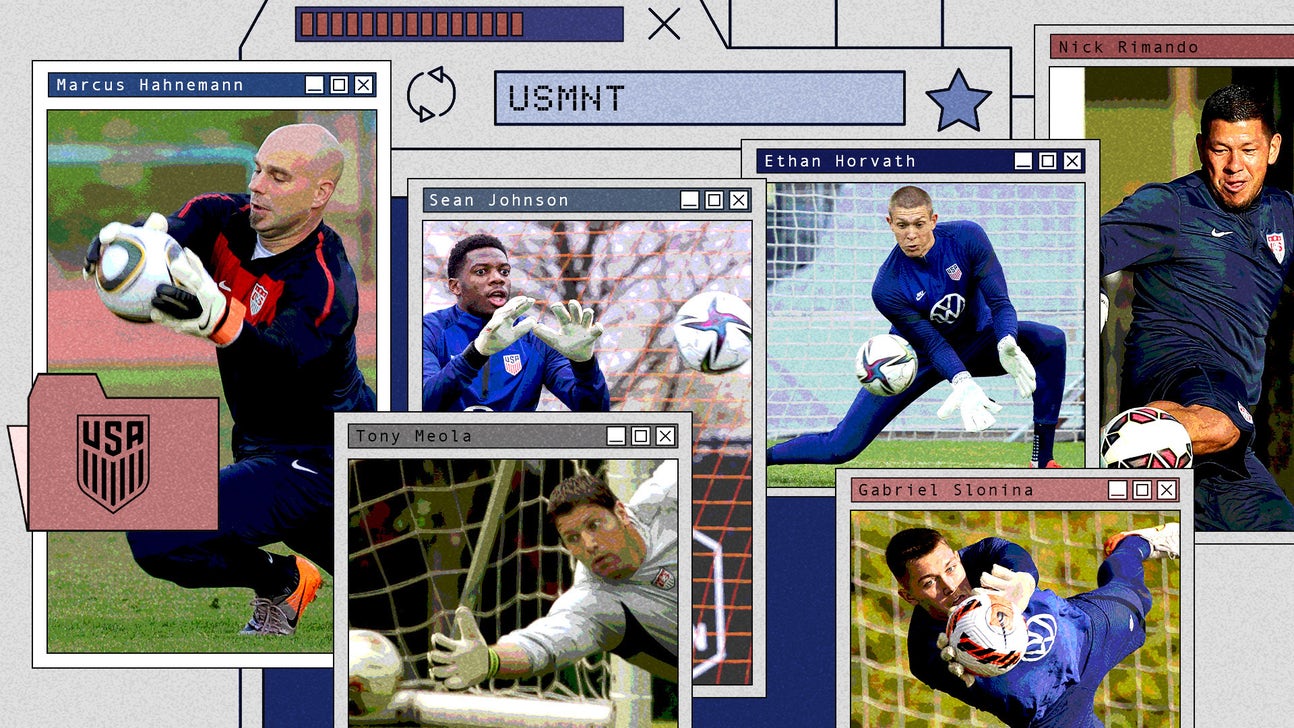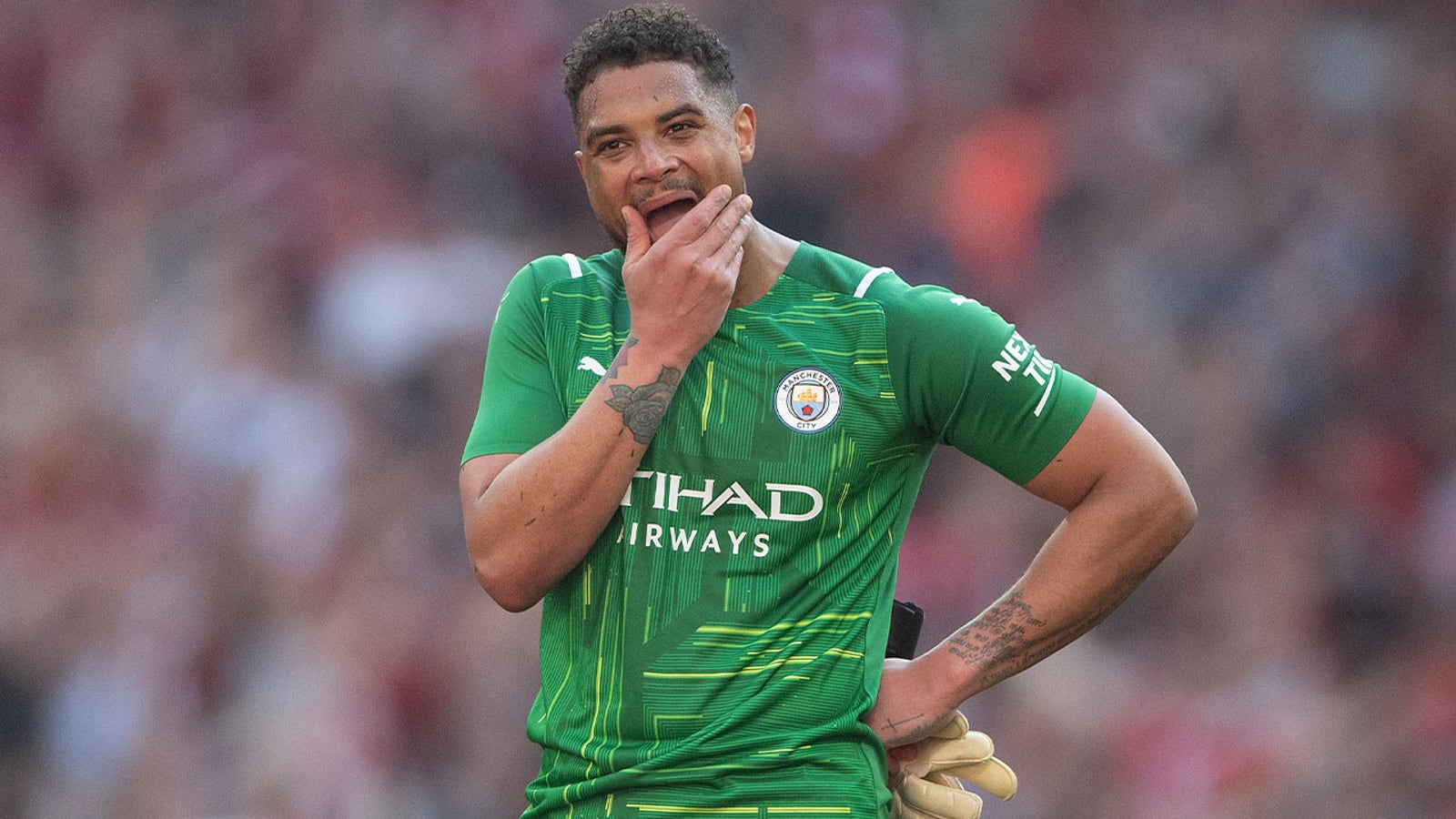
World Cup 2022: Third goalie key for USMNT even if he never plays
By Doug McIntyre
FOX Sports Soccer Writer
Of the 832 players who will be selected to represent their countries at the 2022 World Cup later this year, one member of each of the 32 squads is almost guaranteed not to see the field in Qatar: the third goalkeeper.
FIFA’s rules require that every squad name three keepers, and for good reason. Injuries and red card suspensions happen. Every now and then at the club level, a field player has to don the gloves out of necessity. Still, only six times in the nearly century-long history of the men’s World Cup have three goalies from the same country played in the same tournament.
That’s not to say the third goalie doesn’t fill a crucial role.
"No one outside of the team really remembers that third keeper," said FOX soccer analyst Stuart Holden, who played for the U.S. at the 2010 World Cup. "But everybody inside of the team remembers who that guy is and what they bring to the group."
While Zack Steffen and Matt Turner are entrenched as the top two backstops on the current USMNT, there is competition for the No. 3 spot. Coach Gregg Berhalter picked Ethan Horvath for the national team’s four June games, but veteran Sean Johnson and 18-year-old Gabriel Slonina remain in the mix.
Some have argued that the Chicago Fire’s Slonina, a blue-chip prospect coveted by several elite European clubs, ought to get the nod to gain experience if he projects as a future World Cup starter.
Historically, though, coaches have almost always opted for old hands.
Of the 288 roster spots allotted to goalkeepers over the past three World Cups, just one went to a teenager: Francis Uzoho of Nigeria in 2018. Keepers were on average more than two years older than field players four years ago. That would seem to give Horvath and Johnson an edge over Slonina, especially with Steffen and Turner expected to be understudies next season at Manchester City and Arsenal, respectively.
"If you had two guys locked in playing week-in week-out, I would take Slonina," said three-time World Cup vet Tony Meola, the U.S. starter in 1990 and ’94 and the No. 3 in 2002, edging out a young Tim Howard. "But given that there’s so much uncertainty with the starting position right now, I don’t think you can risk taking a teenager to the World Cup."
What should USMNT do with Zack Steffen?
There’s personality to consider, too.
"It’s not always great, relationships between goalkeepers," said Nick Rimando, the U.S. No. 3 in 2014. "Every goalkeeper has a different perspective. Mine was to prove my value to my teammates and coaches and staff and earn their trust. I made sure I got on well with everybody. When there was a new player in camp, I made him feel welcome. I think that was noticed."
Being able to play is also an obvious prerequisite.
"When Bruce Arena called me," Meola said, "I remember him saying that Timmy will have his chance one day, but I’m taking my three best guys to the World Cup."
In 2006 and 2010, the third U.S. keeper role was filled by Premier Leaguer Marcus Hahnemann. "I went to two World Cups and I didn’t play, so that’s kind of a disappointment," he said.
Whatever disappointment he felt didn’t show.
Hahnemann was by all accounts a key contributor in 2010 despite never leaving the substitutes bench. He’d stay after training to take extra shots. He and Brad Guzan would make sure starter Tim Howard was sufficiently warmed up before games. At the hotel, he’d help the team’s chefs prepare meals, print jerseys for the equipment staff and generally do anything he could to keep things loose. Under intense media pressure and confined in close quarters for more than a month, those moments of levity went a long way.
"One day, a few players were in the hot tub just kind of chilling, and Bob Bradley comes and gets in the cold pool. It’s always awkward when the coach is there," Holden said. "Suddenly, Hahnemann comes running out of nowhere and does a cannonball into the cold pool and completely dunks Bob, who starts laughing. It eliminated any tension immediately.
"That was Marcus’ role. He trained hard, and he kept just such a great attitude and really motivated guys and, when he needed to, gave the team a laugh."
"For most goalies, it’s all about the team," Hahnemann said. "The worst teammates I’ve ever had have all been forwards. As a forward, it’s about you and scoring goals. They need to be like that, so I’m not trying to bag on all forwards. But a goalkeeper can’t win a game. The only thing you can do is not lose. So that team camaraderie becomes really important to you.
"Then you add in playing for your country? There’s no greater honor," he added. "Why would you not want to be a part of that?"
That’s not to say there isn’t sacrifice involved. Players are away from their families for weeks on end. Meola’s wife was seven months pregnant when he left for South Korea in 2002.
"It’s a big commitment," said Rimando, who specialized in stopping penalty kicks. "It’s not just the World Cup, it’s the years leading up to the World Cup."
"I remember Bob [Bradley] actually asked me if it was something I wanted to do," Hahnemann said. "I knew Tim was the starter, but I liked Tim. If I didn’t, there could’ve been a conflict. One [bad] guy can destroy everything. It doesn’t take too many people to ruin a team."
Brad Friedel and backup Kasey Keller, two of the most decorated keepers in USMNT history, famously didn’t get along. Meola was the buffer between them in 2002, a spot in which a younger and less experienced keeper might not have been as comfortable.
The goalkeepers’ union appears united on the current national team. It’s up to Berhalter to keep it that way. Whomever the coach picks as his No. 3 keeper for Qatar must be more than reliable in the net. He must also be willing to perform the crucial and selfless work, far from the global spotlight, that every successful World Cup team needs.
"You try to make people smile and laugh; you try to work harder than the other two goalkeepers," Rimando said. "Only one guy can play at a time. You can sulk or pout if it’s not you, or you can be there for the team and make it better."
One of the leading soccer journalists in North America, Doug McIntyre has covered United States men’s and women’s national teams at multiple FIFA World Cups. Before joining FOX Sports in 2021, he was a staff writer with ESPN and Yahoo Sports. Follow him on Twitter @ByDougMcIntyre.











